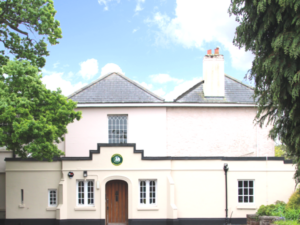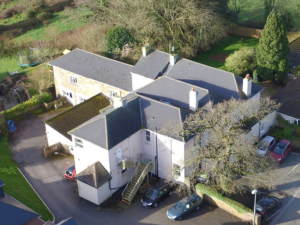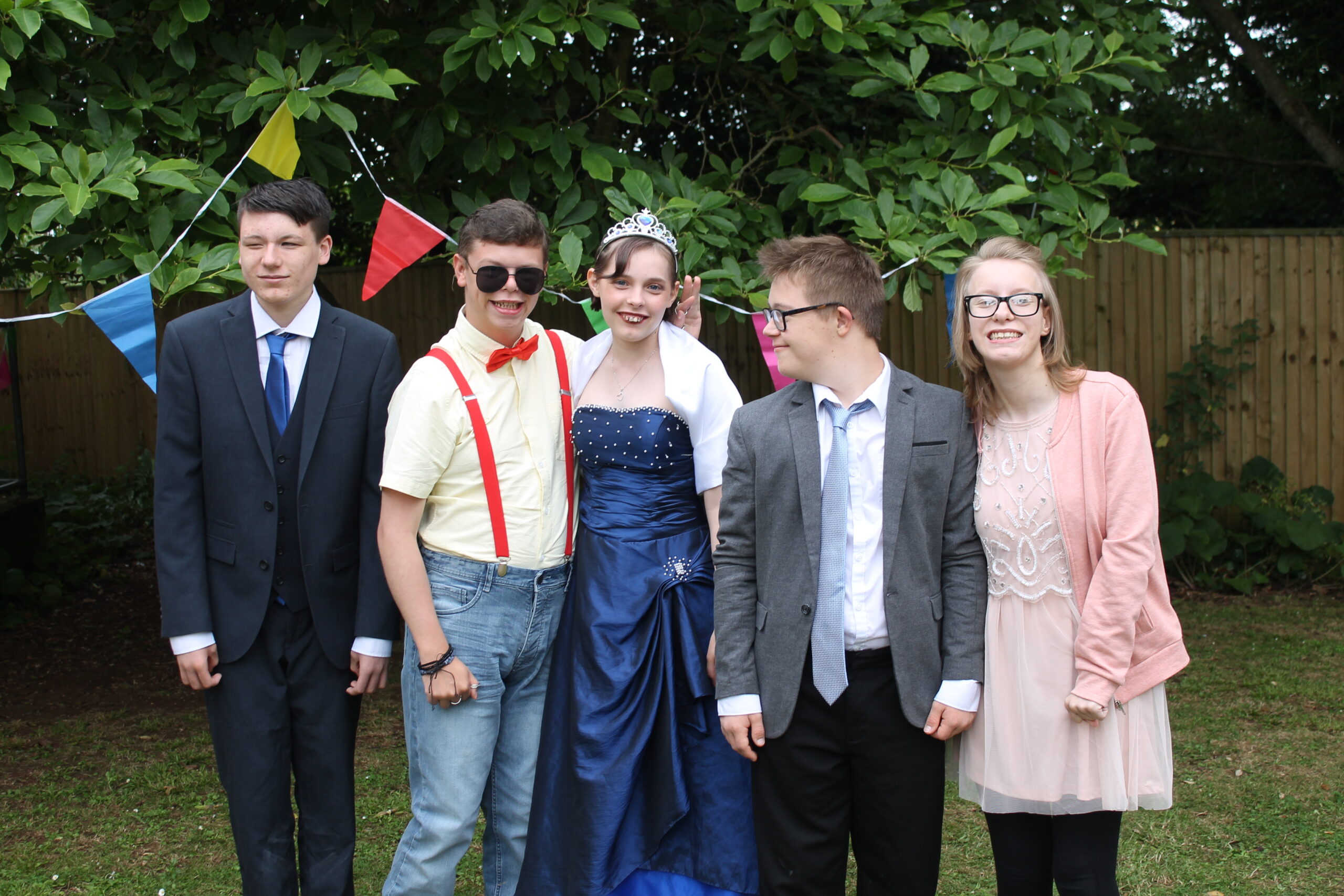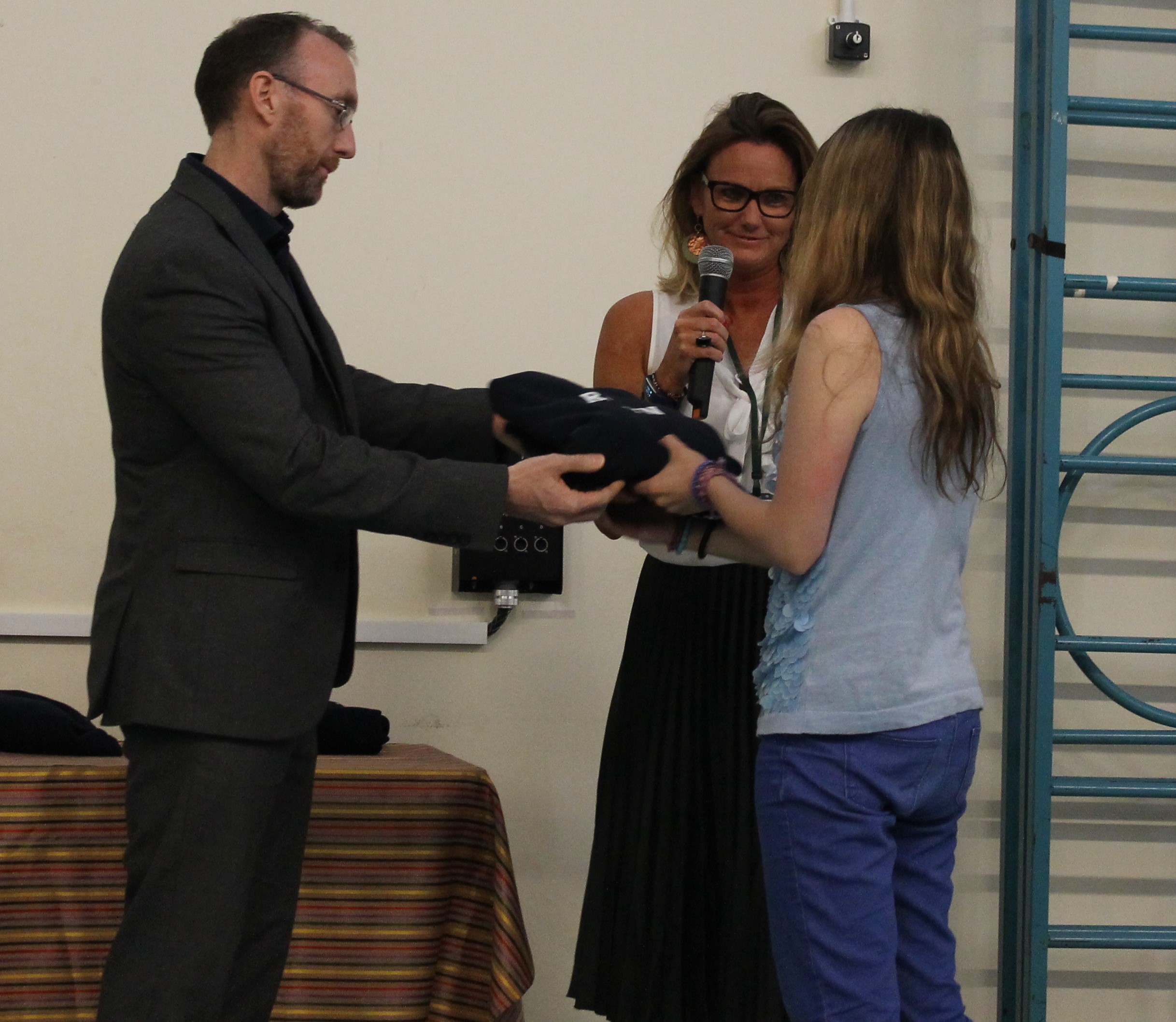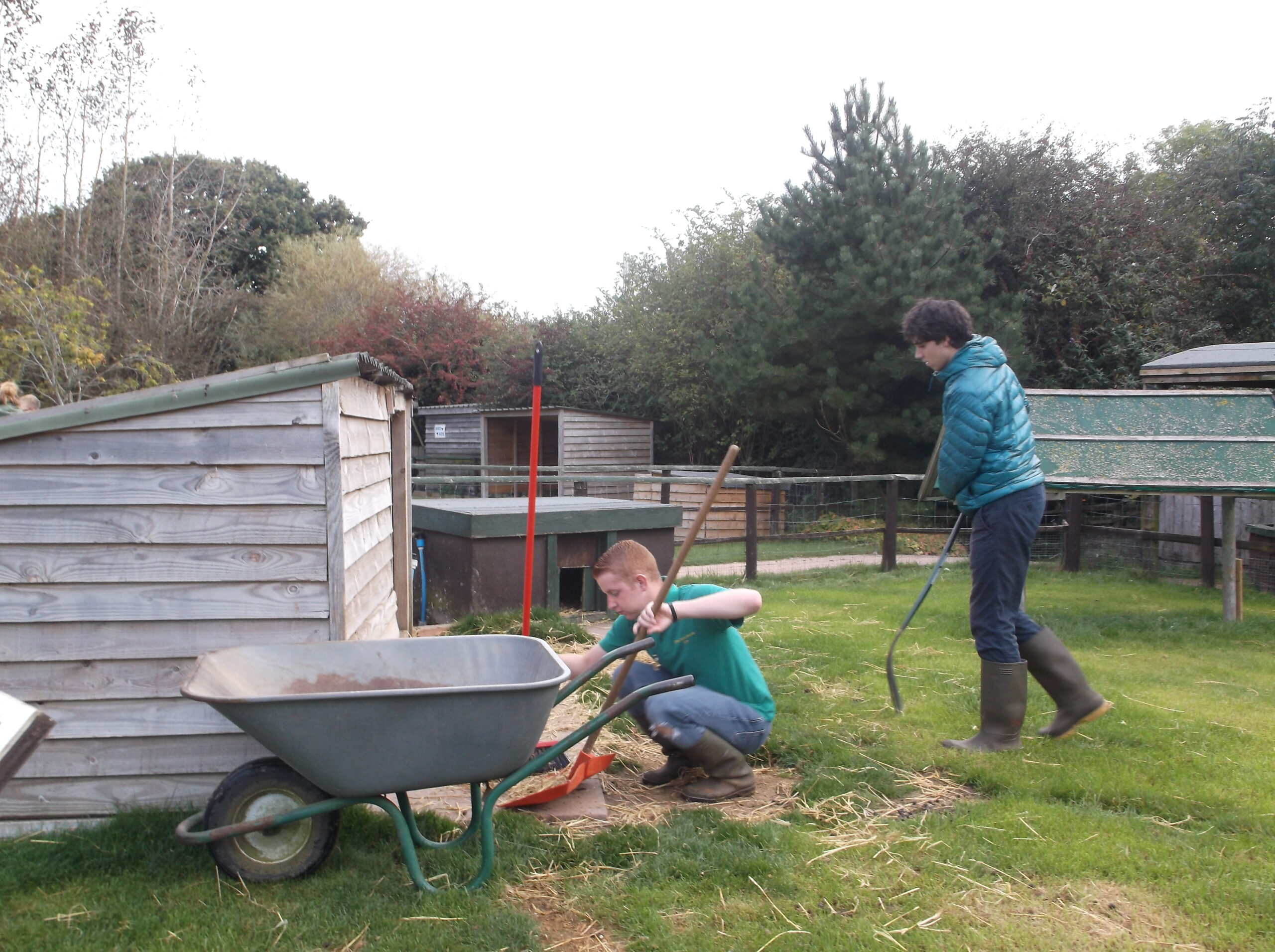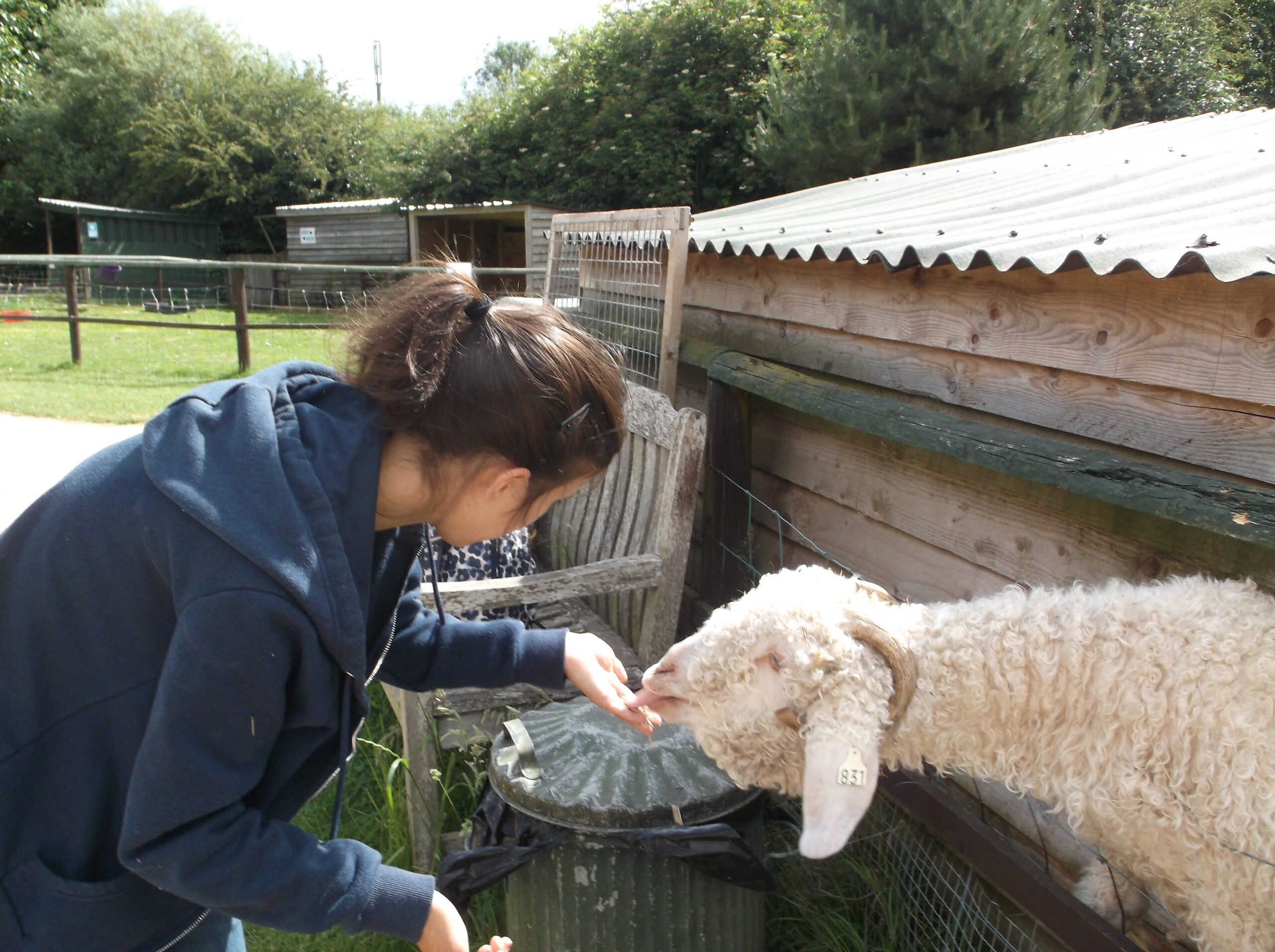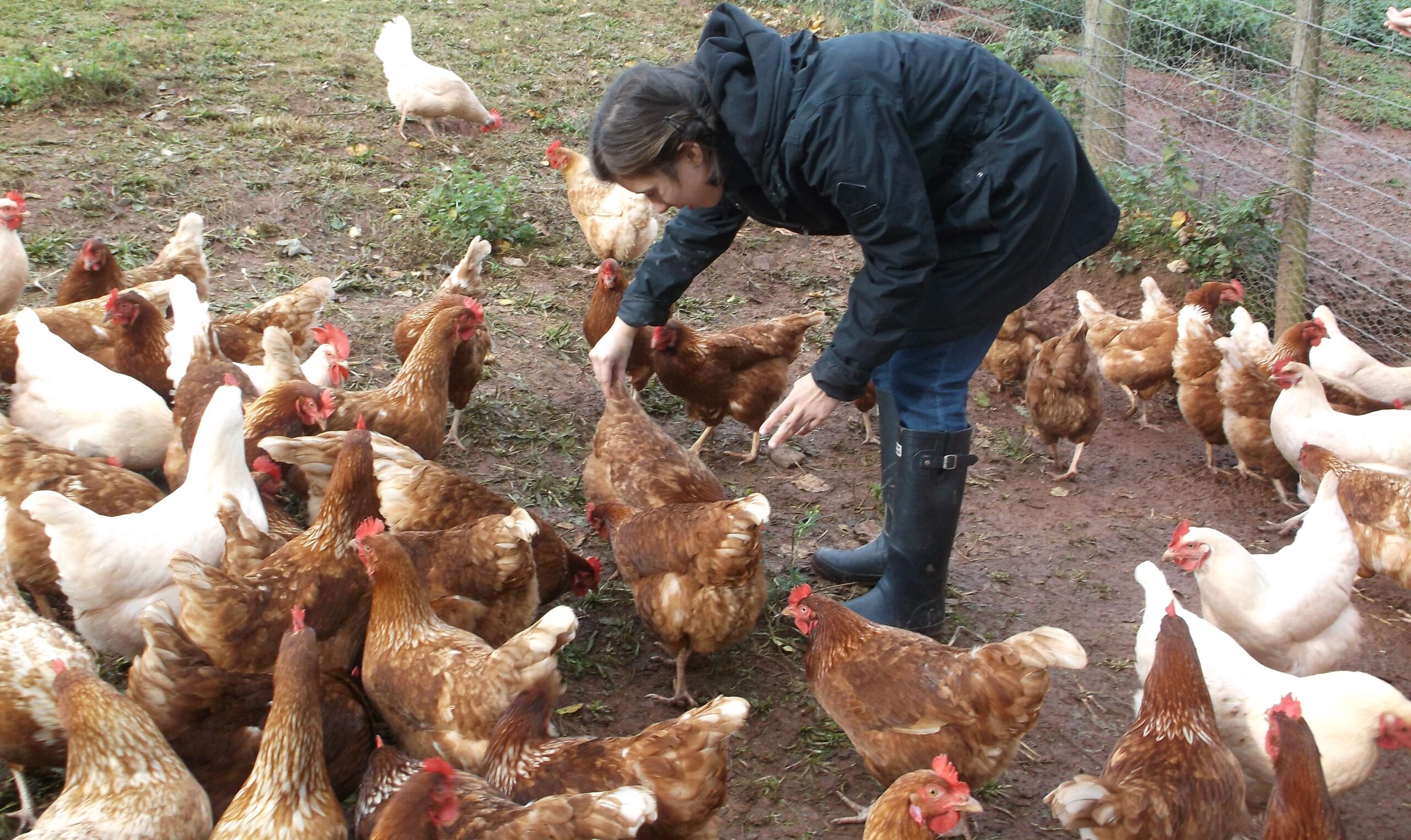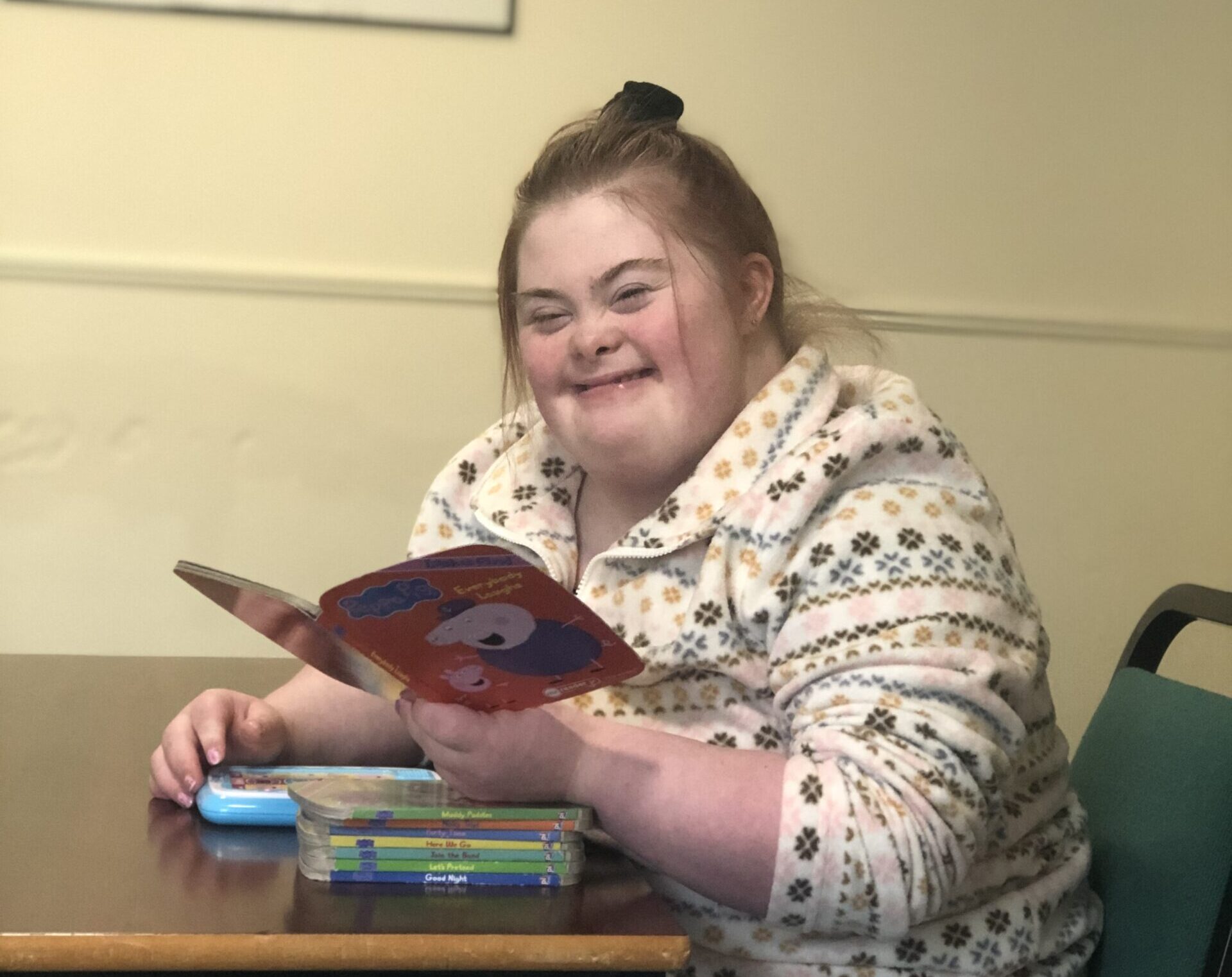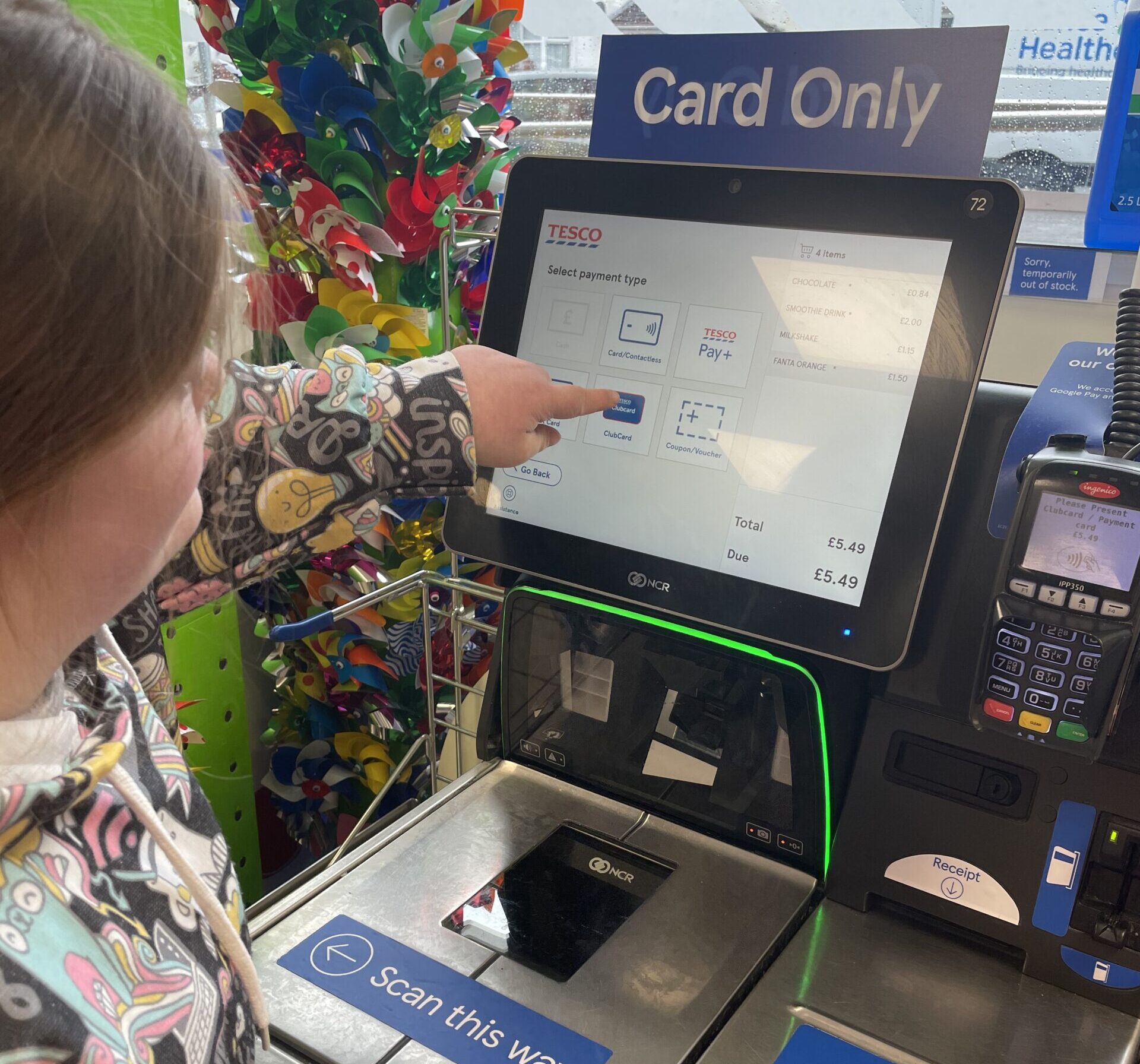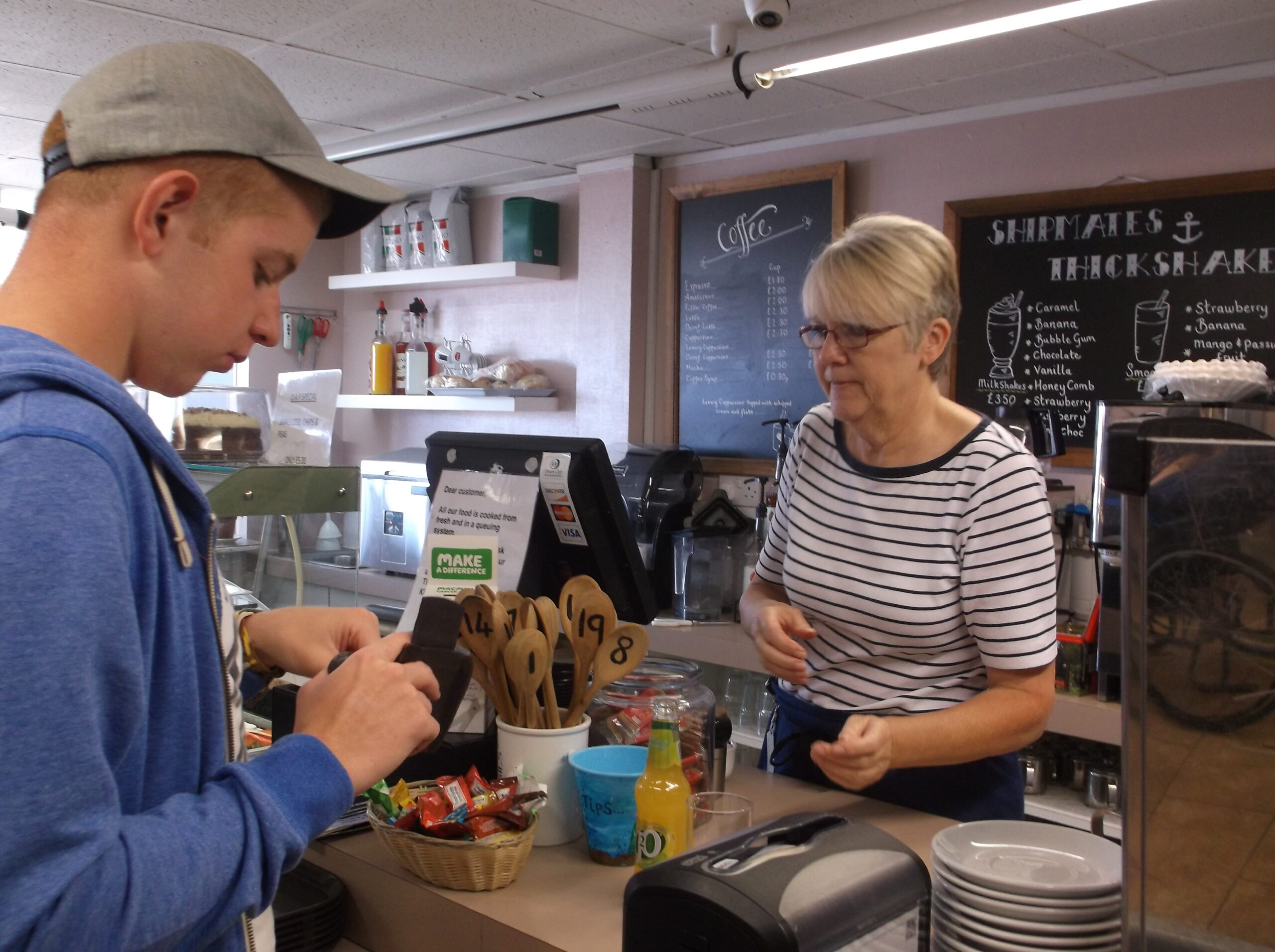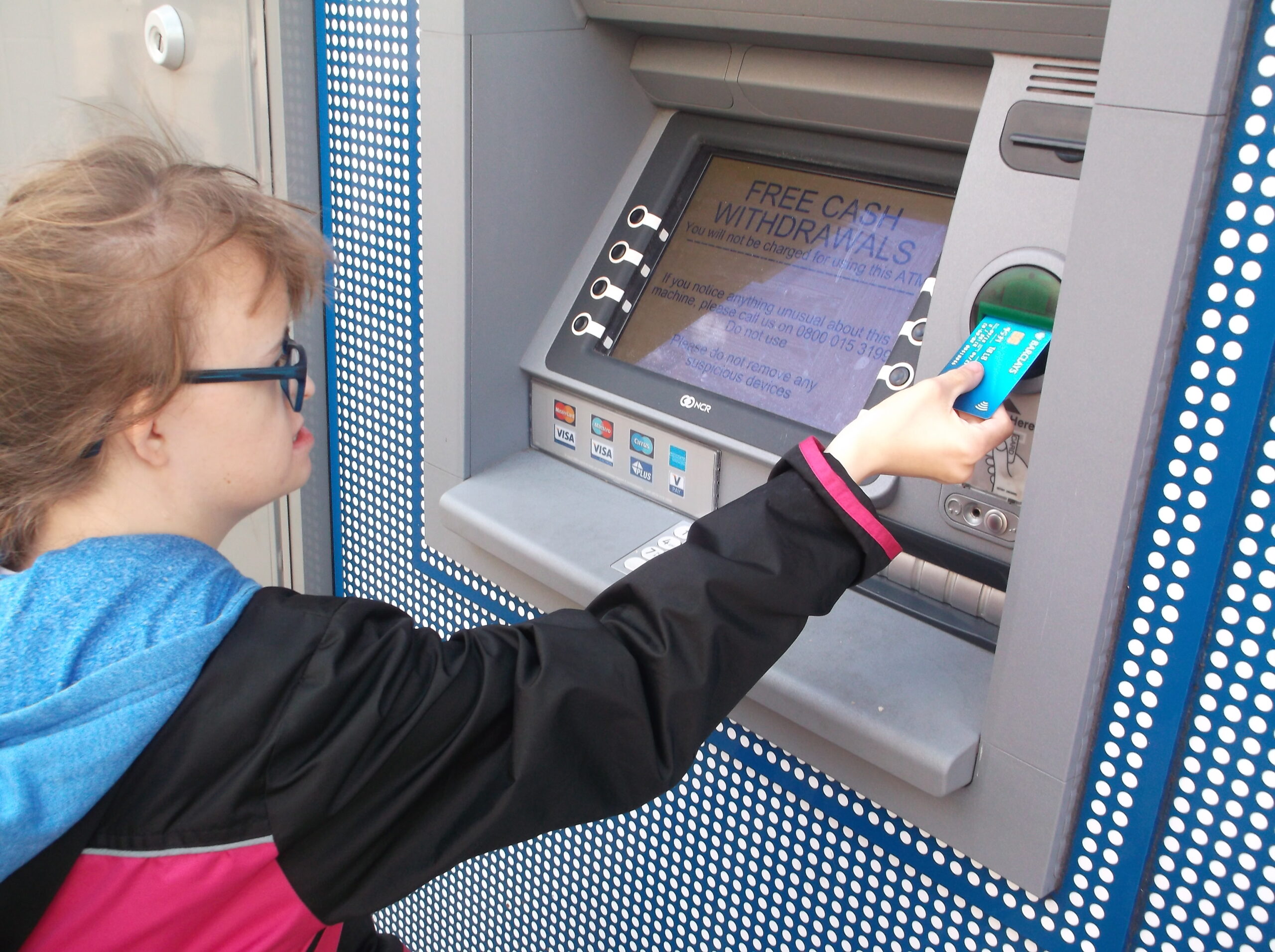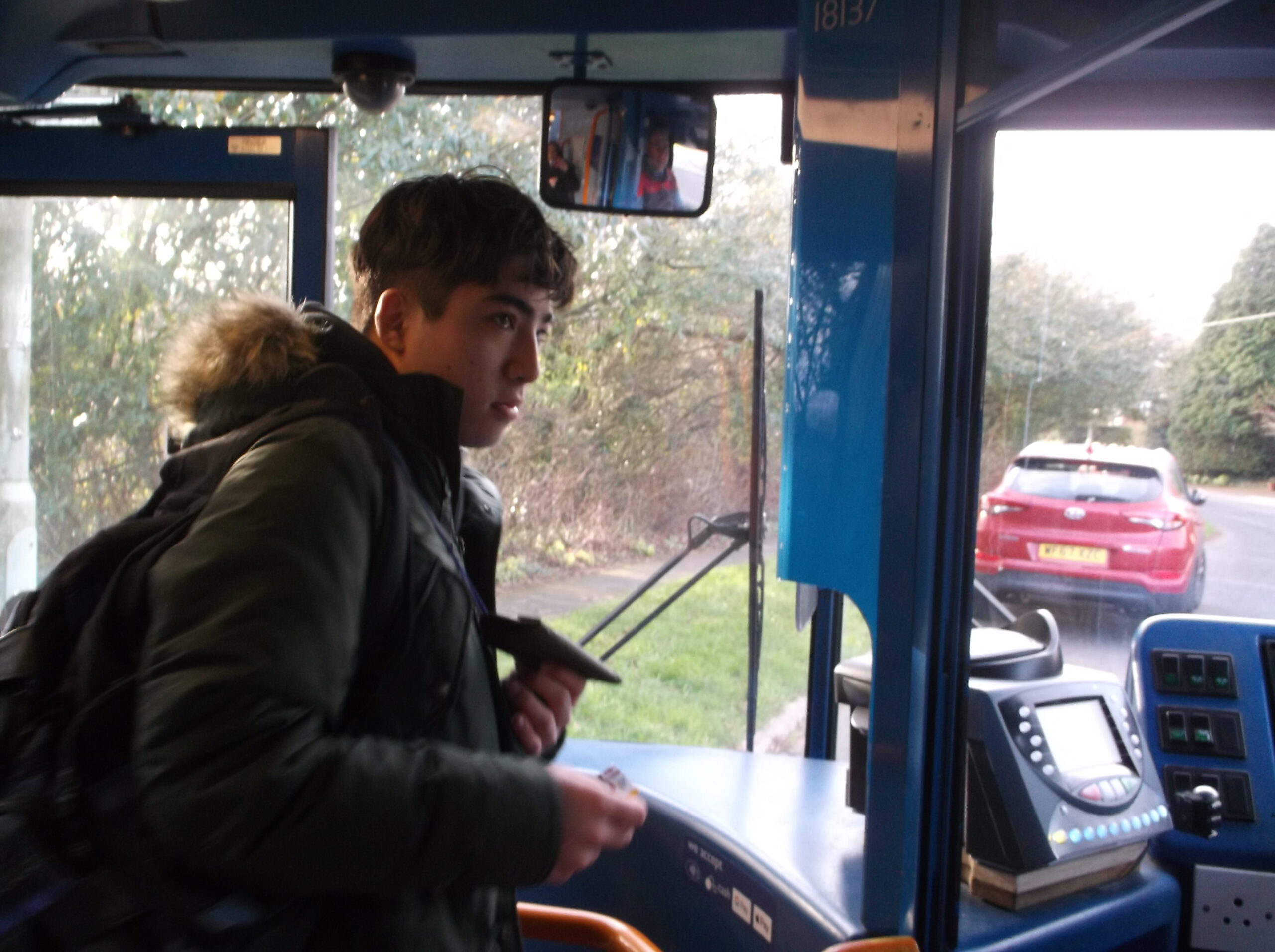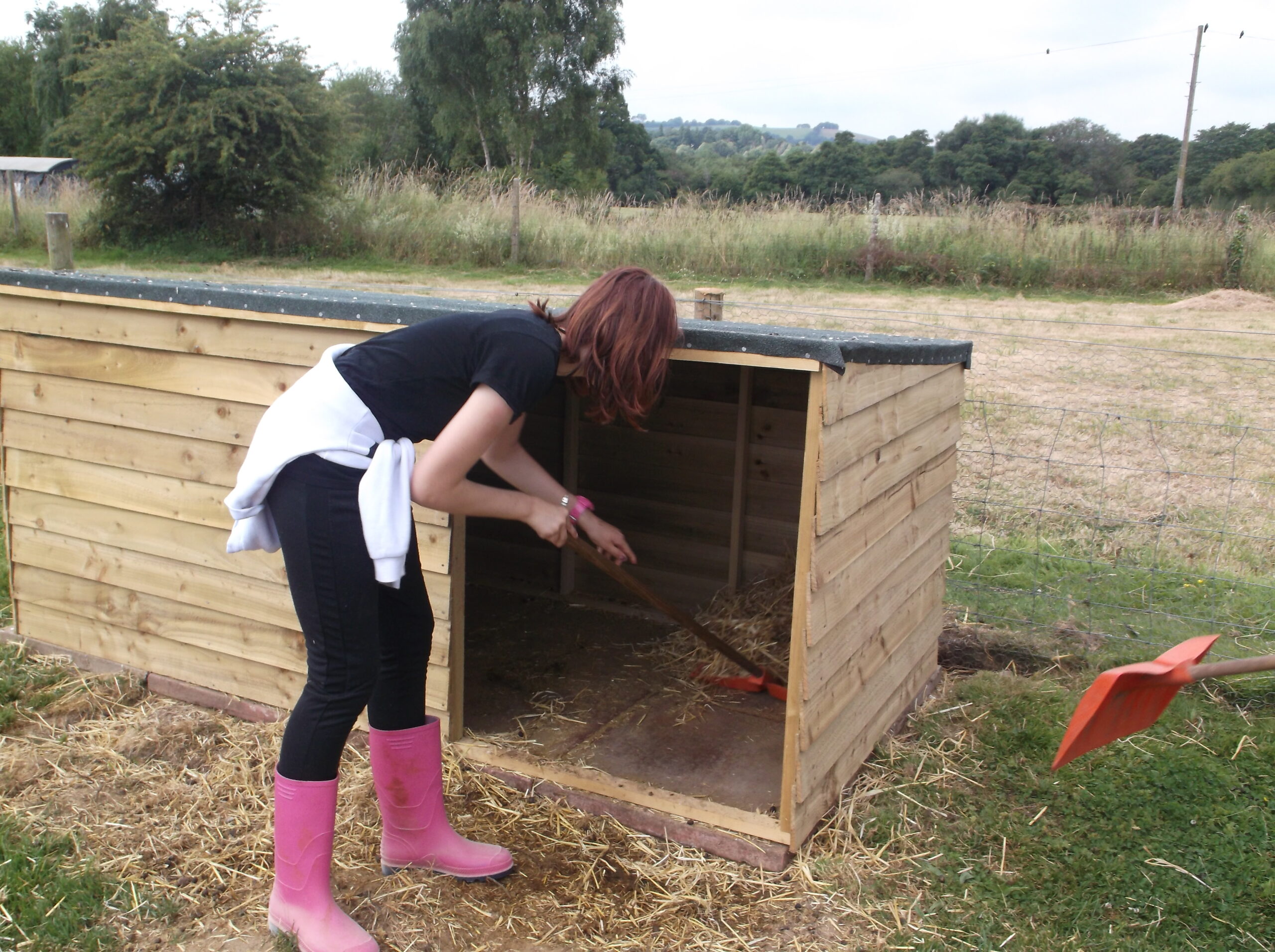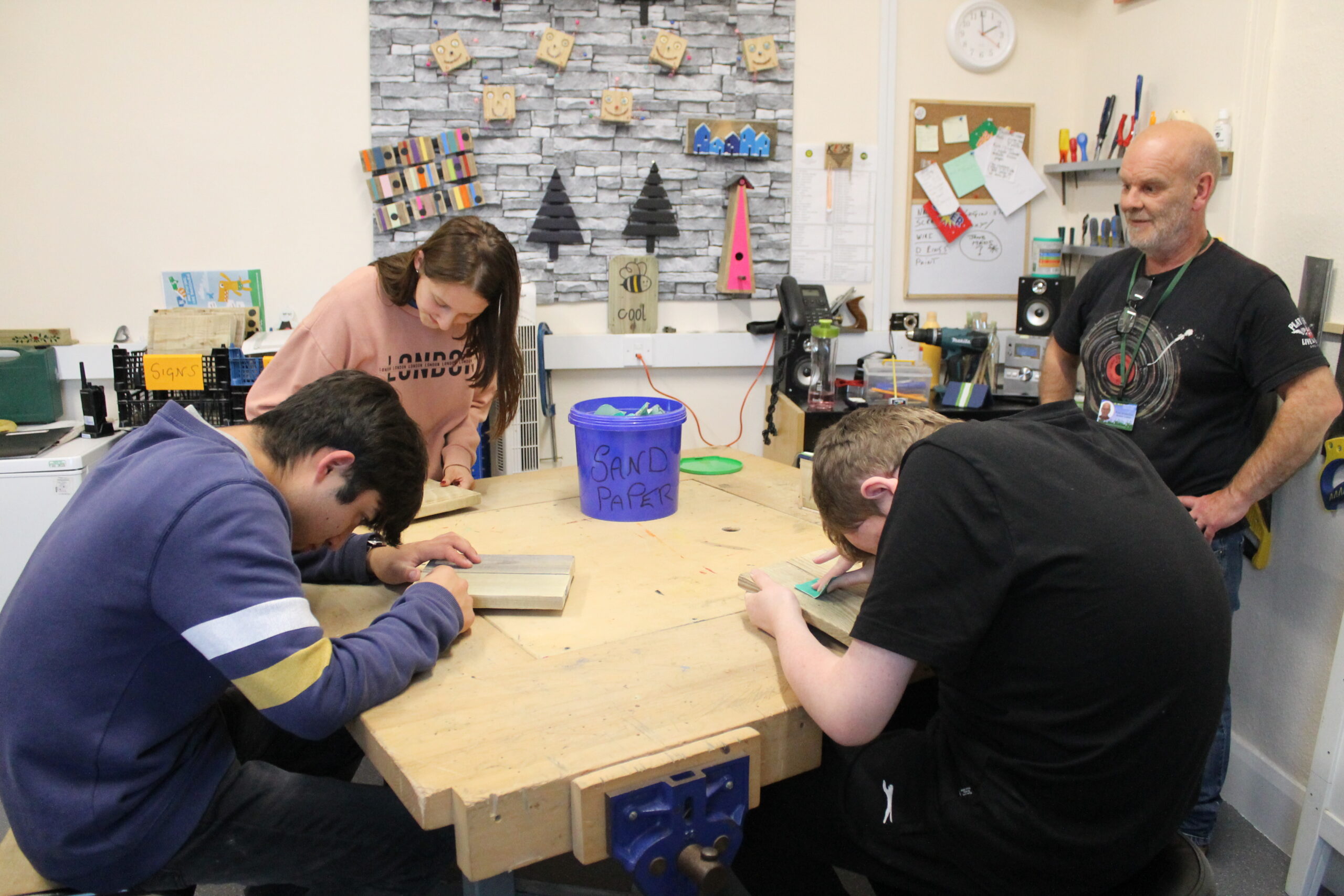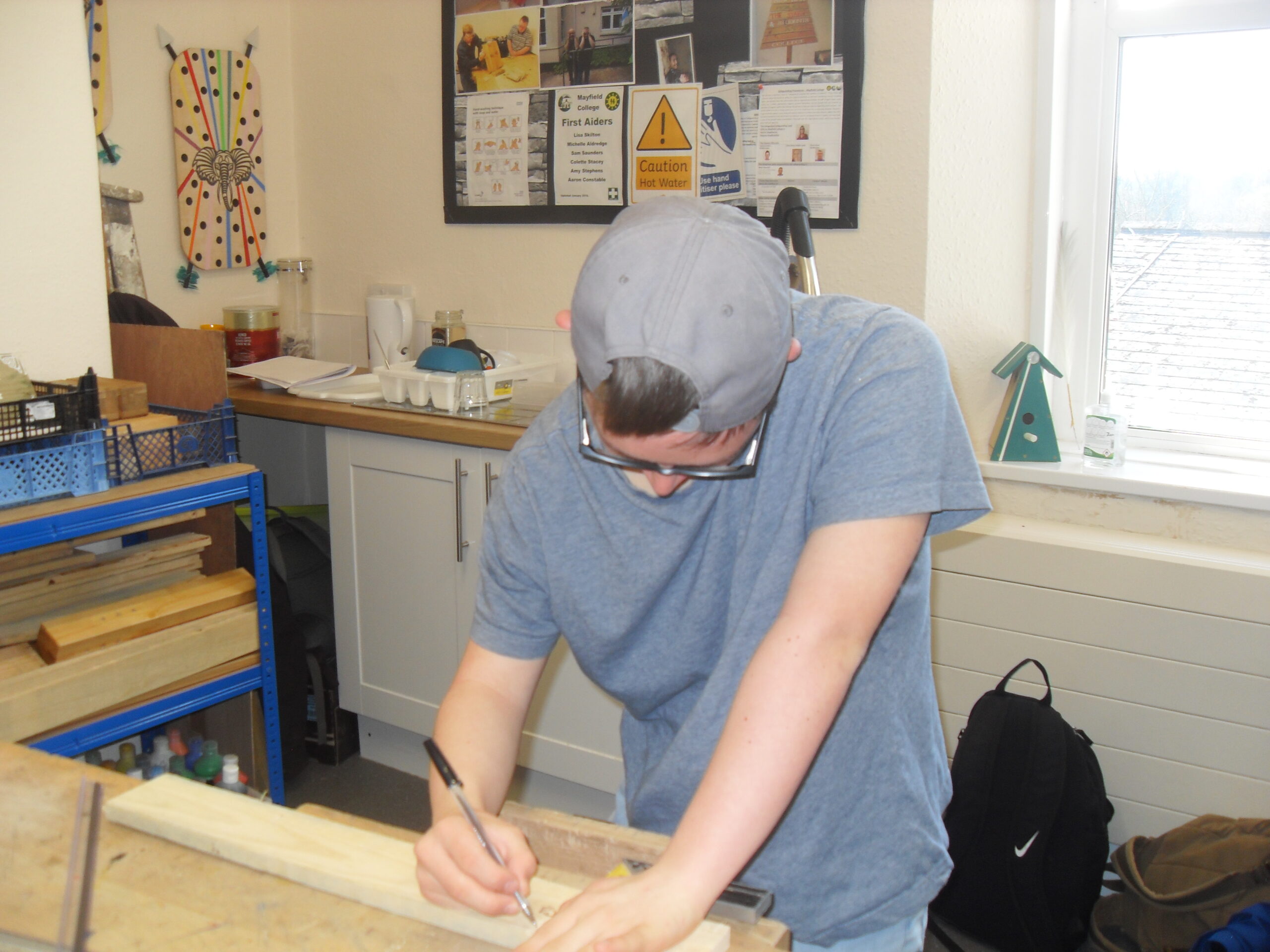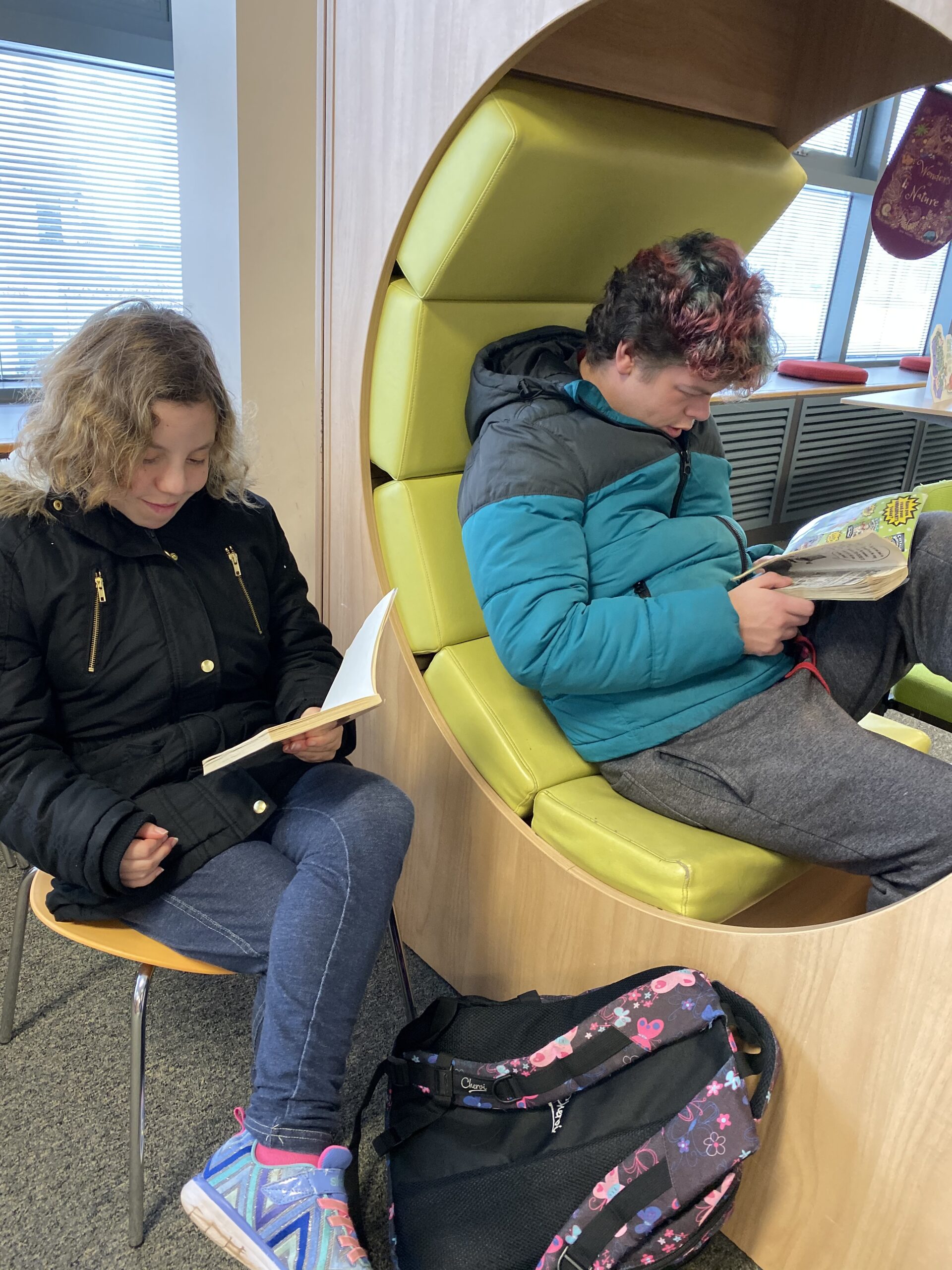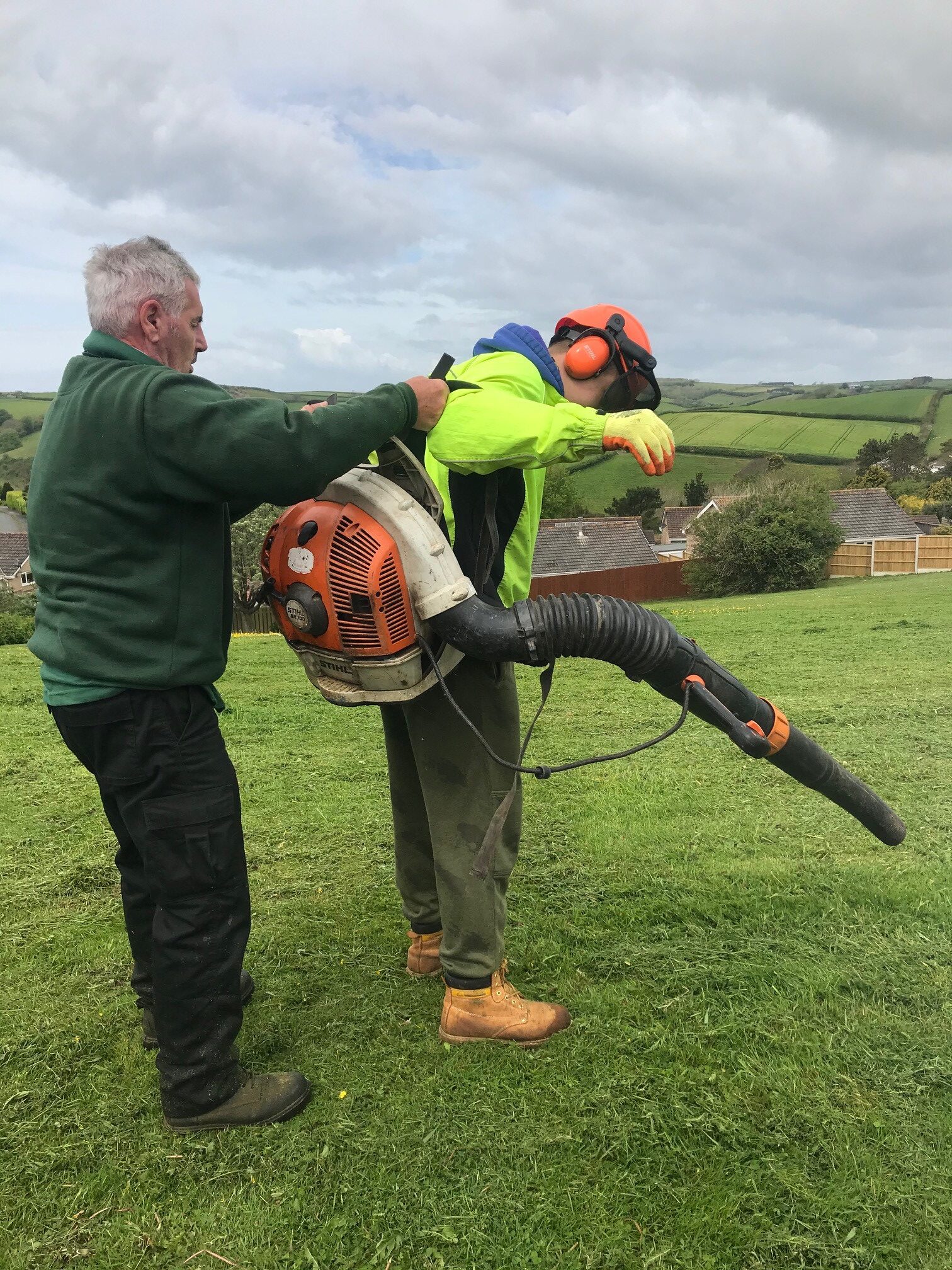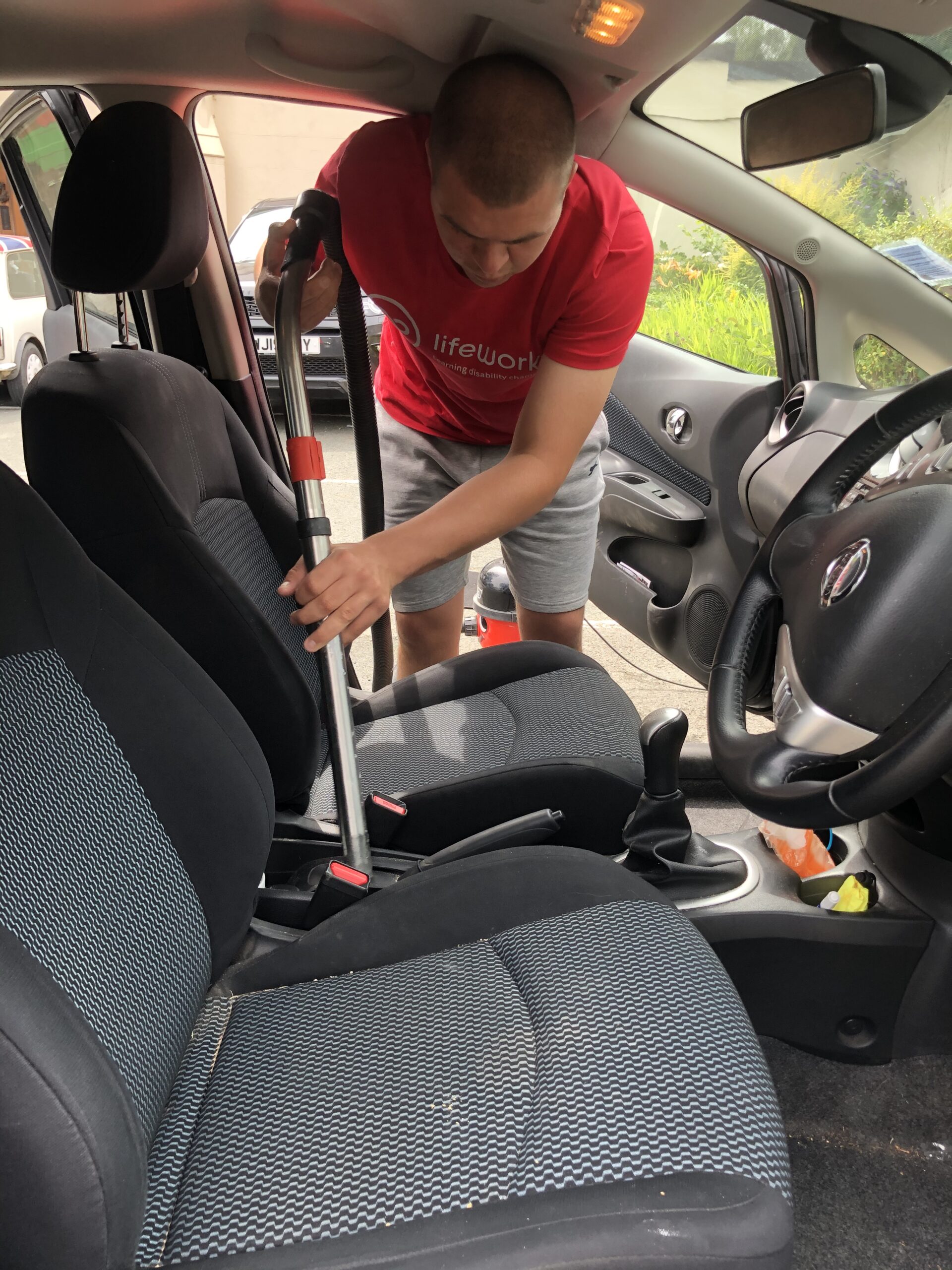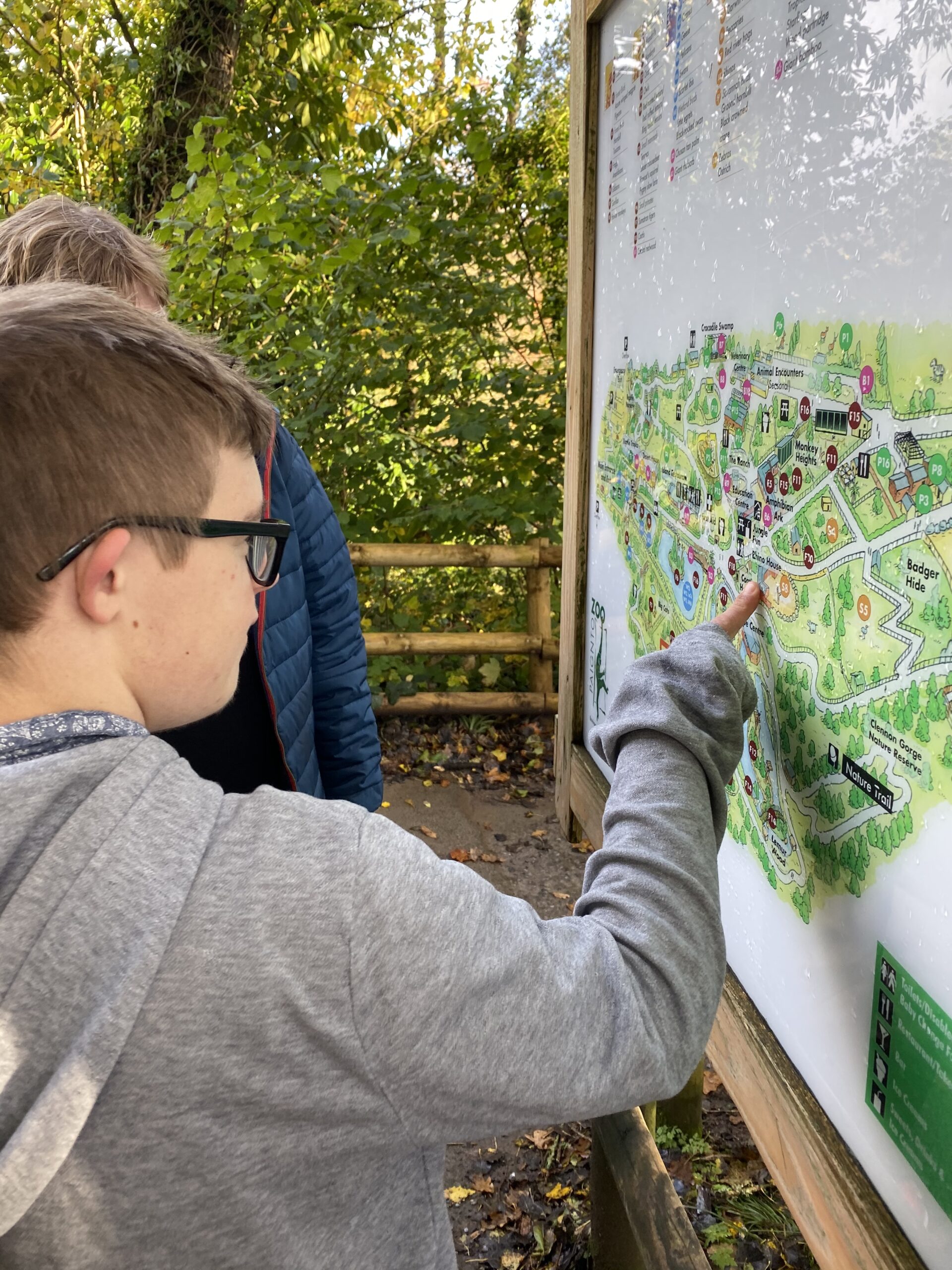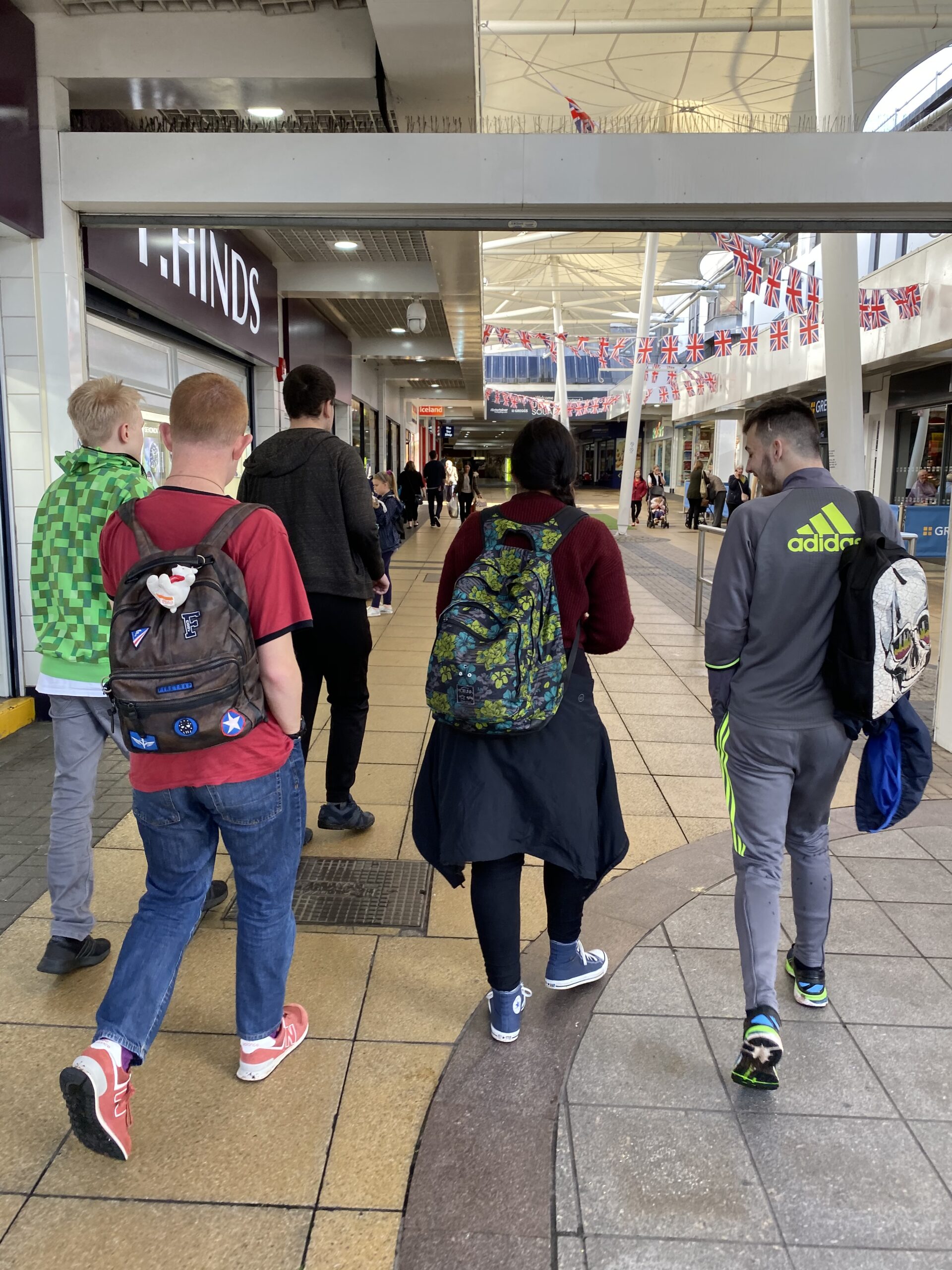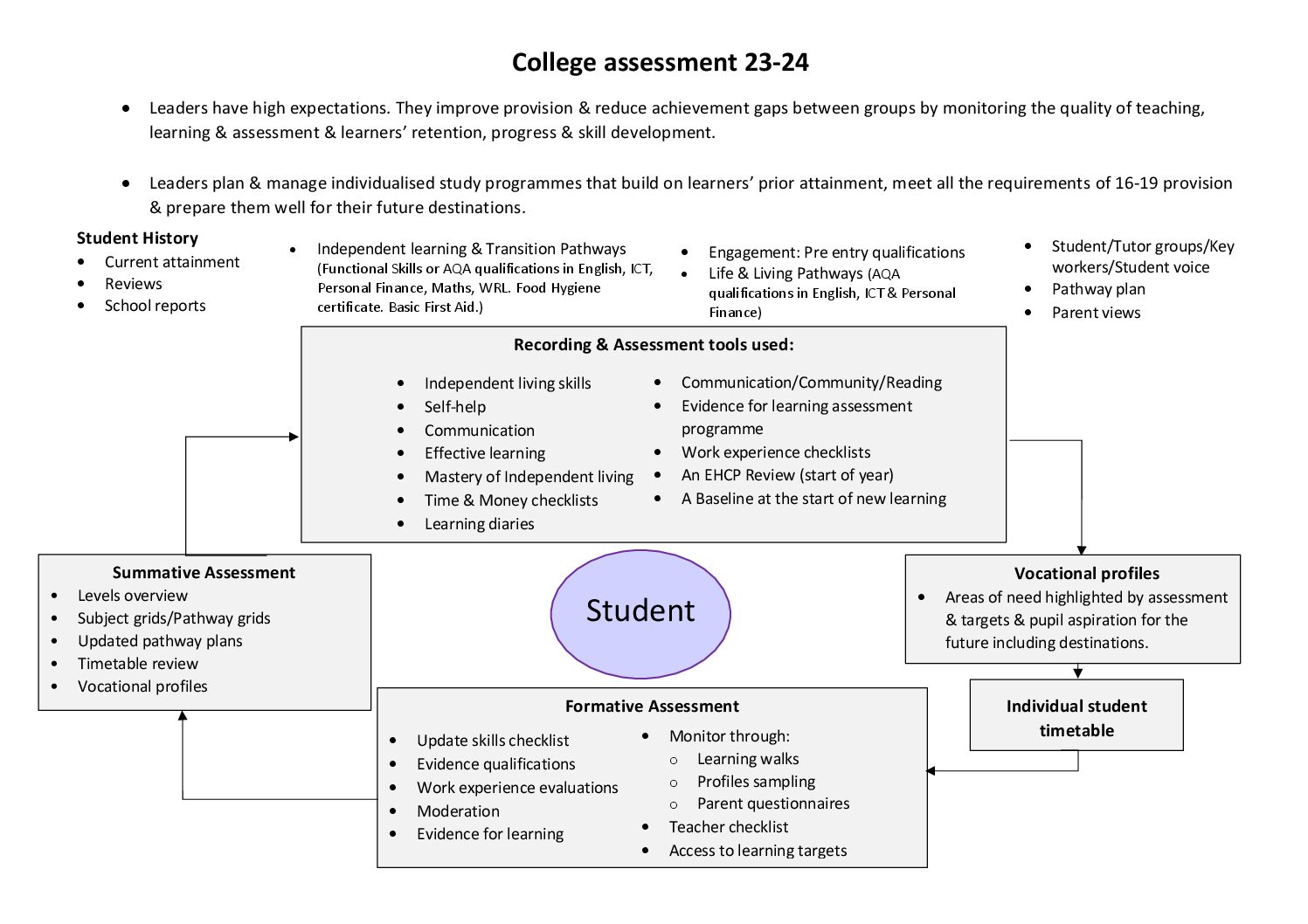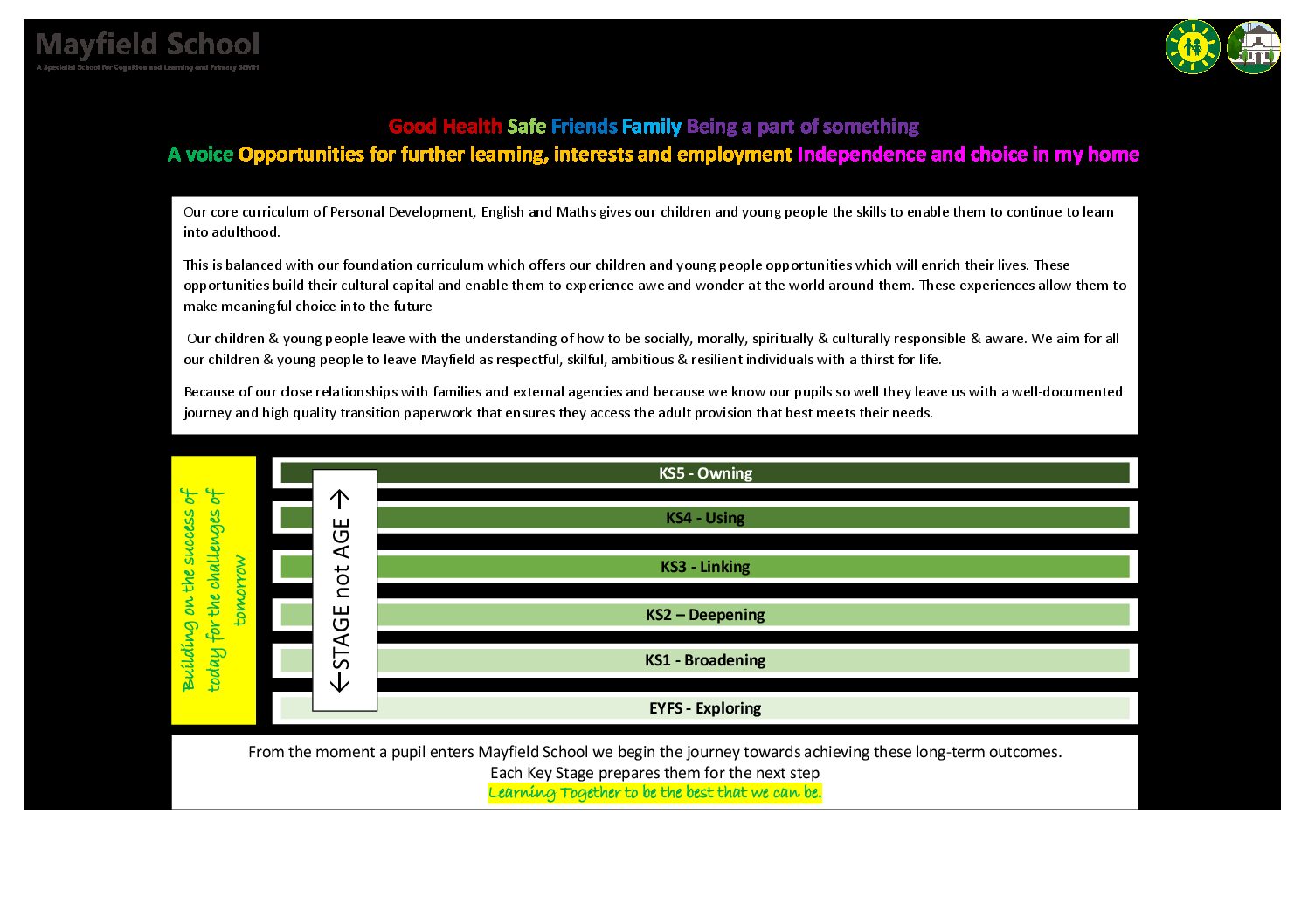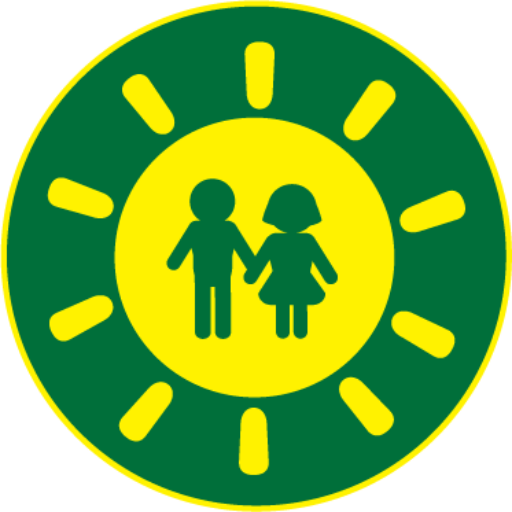Mayfield college site
OCCOMBE HOUSE, PRESTON DOWN ROAD, PAIGNTON
Learning for life
The College provision is designed as a stepping stone between a student’s school career and adult life. Mayfield College supports all students and builds their ability to become active and valuable members of their adult communities, whilst gaining independence along the way. Each student is encouraged to achieve and is given the opportunity to develop skills that will enable them to make more informed choices about where and how to live and the work opportunities available to them. We aim to provide a holistic programme of study for young people with learning experiences that are challenging, relevant and fun whilst supporting individual progression and preparation for adulthood.
Our programme is underpinned by the principle that in order for learning to take place, all physical, medical, sensory and social needs are met within a fully inclusive community provision and that opportunities to grow in confidence and self-esteem are abundant, without the fear of failure. At Mayfield College we use a range of learning methods and resources which utilise links with other professionals, agencies and the community to ensure students achieve improved outcomes. The curriculum offer is in line with the 21st Century Skills of Communication, Basic Living skills, Creativity, Citizenship and Work Related Working, Digital Literacy and computing and Personal Development Leisure and Exercise.
The areas outlined above are taught both in the classroom and, more importantly, in real life contexts, for example on work placements or in the college. Progress in Maths and English and Information Technology are embedded into the student’s learning programme. The College provides person centred programmes and pathways and is committed to working with students, families, and multi-disciplinary agencies including partners from social care and health to establish appropriate progression routes when students leave.
The College Day is 0900 – 1500 (30 hours per week)
“Learning together to be the best that we can be.”
COLLEGE B.R.A.V.E Curriculum
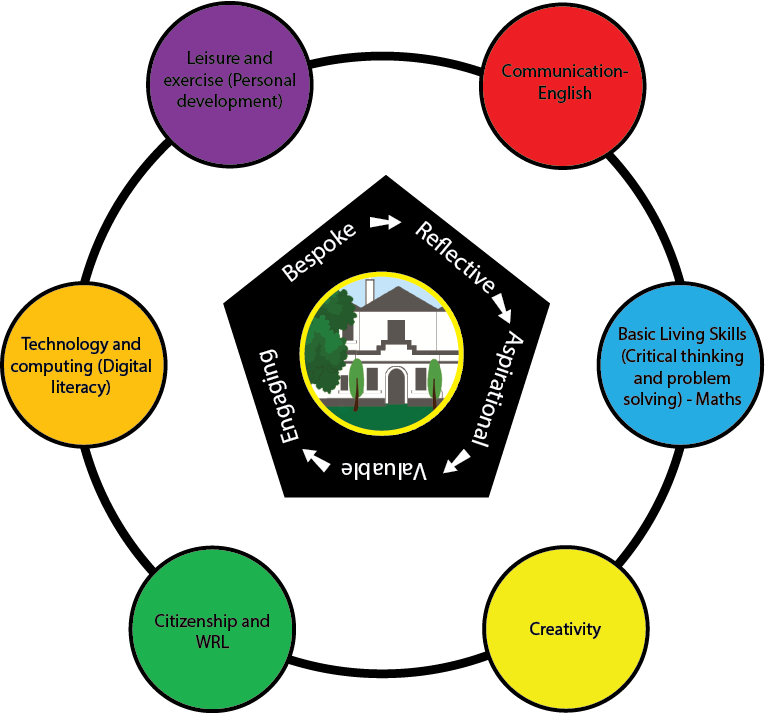
COLLEGE AIMS
- Prepare young people for adulthood with high aspirations for a fulfilling adult life
- Provide individual pathways suited to the needs of each young person & based on their education, care & health plan
- Promote student & family choice
- Provide opportunities to gain nationally recognised qualifications where appropriate
- Support students & their families through the transition years
- Encourage students to have life experiences
- Simulate the post 16 market so that young people get a job & experience a full life & by doing so setting an example for all
- Develop a shared vision across all partners including education, local business, health & social care with families & young people at its heart & focus on improving life chances
PROGRESSION & ACHIEVEMENT
At Mayfield College we value progression which ensures that students:
- Are prepared for adult life & are as independent as they are able to be
- Succeed in the long term outcomes as outlined on their Education, Health & Care Plan Education & Life outcomes (EHC plan)
- Are recognised for both linear & lateral progression in English & Maths
- Continue to consolidate skills & knowledge already in place, accumulate new skills & knowledge & have positive attitudes towards their learning
- Acquire externally recognised qualifications & awards where appropriate
- Develop as a person by having a greater understanding of spiritual, moral, social & cultural issues
- Become progressively more capable of making informed & appropriate choices about their own career & life aspirations
Initial assessment, setting targets, assessment & reporting
Prior to starting in the College, students take part in a transition link in order to facilitate smooth transition. This is achieved through meetings, sharing information & consistent approaches.
During the initial period (First half term) students are fully assessed in all areas of Daily Living Skills & Self Help Skills. Assessment is then ongoing (formative) & recorded daily through progression files. Students are also assessed at key intervals (summative), some with external exams in Literacy & Numeracy.
Progress data is reviewed throughout the year & reported to parents through Annual Reviews & Teacher Reports.
Where it is evident that students are not meeting set targets, interventions are put in place accordingly.
Pathways
Which KS5 pathway a student follows is determined by a number of factors based on a person centred approach where the young person’s view is key.
Other factors which are taken into consideration are:
- Recommendations of the young person’s ECHP
- Attainment achieved at the end of KS4 in English & Maths & Secondary Pathway
- Their Individual Learning Plan
- Student aspirations
These factors are interdependent; whilst a student may have achieved a level in literacy or numeracy which suggests a long term goal of supported work, additional factors such as complex autistic related needs may mean that adjustments to the programme will be made in order to make it meaningful whilst remaining aspirational.
COLLEGE PATHWAYS
The Pathways form the basis of the College curriculum of which all students’ study; what differs is the emphasis of each pathway.
For example, students on the Life & Living pathway may take part in work activity through joint community projects, whilst on the Independent Learning/Transition pathways there may be increased emphasis on individual work experience placements.
ENGAGEMENT PATHWAY
(Skills for life pathway)
The students within this pathway have a range of complex learning needs, challenging behaviour and complex Autism & aims to develop communication, life, social & work-related skills. The curriculum offer is in line with the 21st Century Skills of Communication, Basic Living skills, Creativity, Citizenship & Work-Related Working, Digital Literacy & computing & Personal Development Leisure & Exercise.
The students are taught through a specially adapted, meaningful topic-based curriculum. A great deal of emphasis is placed on promoting independence and developing increased levels of engagement within the seven strands of cognition and learning: Responsiveness, Curiosity, Investigation, Discovery, Anticipation, Persistence, and Initiation. Activities are designed to encourage the students to respond to the environment and give them access to a purposeful, individualised curriculum that fully meets their specific needs. Emphasis is placed on developing communication strategies that allow our students to ‘have a voice.’ A range of communication strategies are used dependent on the specific requirements of the individual pupil.
Communication, language, and literacy are a key element/focus, enabling students to thrive and for staff to unlock the potential of students. Structure and routine play a fundamental role in the student’s day, and this is ensured through the use of visual timetables, now and next boards and cue cards to support transitions and independence.
Curriculum implementation and sequencing:
The weekly timetable is well balanced across the curriculum and offers the students a wide variety of learning activities and experiences that are designed to be exciting and interactive, ensuring that students are engaged throughout and have the opportunity to practice new skills and knowledge whilst revisiting and embedding what they have previously learnt. The timetable on offer is based around short 20-minute sessions, which immediately engage the students through a variety of interactive, hands on activities, encouraging and supporting the development of life skills including fine motor skills, communication and independence skills such as dressing and undressing whilst following a main theme
Intended Destinations and Progression:
Students leaving this pathway should be able to engage with the world around them more independently, be more able to use coping strategies to cope with a sensory world & be able to carry out work related activity. They should be able to contribute to the local community through social enterprise activity, make choices & indicate preferences in relation to elements of their Education Health & Care Plan such as living arrangements, support, friendship & leisure opportunities.
Students may progress to supported living or to social enterprise/work groups.
LIFE & LIVING PATHWAYS
(Skills for life pathway; Careers & Further education pathway)
The Life & Living pathways aim to provide our learners with important life skills, knowledge and experiences to help them lead an independent and fulfilling life, which enhances confidence building, physical and social skills and English and maths.
Independent living at home, e.g., basic home cooking skills or keeping the home clean and tidy.
Community engagement, which may include learning to go shopping, using public transport and using local services such as a doctor’s surgery or dentist and explore interests.
Personal development and good health, developing behaviours for learning; including learning to keep safe, the importance of staying healthy, developing English, Maths and ICT skills, use of technology to enhance learning and communication and employability skills though the college’s work placement strategy.
Our vision is to support our learners to be INDEPENDENT, CONFIDENT AND RESILIENT so that they are well-prepared to engage with the wider community.
These pathways will equip our learners to be more Independent and if successfully completed enable them to move on to further progression to the Independent Learners Pathway or live life more independently.
Curriculum implementation and sequencing:
The emphasis this year will be to help pupils to think about what a community is, the different people in their community and how people help and respect each other. We will learn about why rules are important and what contribution they can make to their community. We will focus on preparing our young people for independence by supporting them to use busses and trains as independently as possible.
PSHE will be a focus within these activities as students have to think about how they behave, dress, take responsibility for their personal belongings, own personal hygiene, work as a team, think about their personal safety.
Intended Destinations and Progression:
All of our learners will have individual goals and targets to work towards throughout their programme. We will strive to help them to achieve their goals, transferable skills and work towards their independence. This will enable them to have a choice on their future, as much independence as possible and a control of their support. Achieving more independence will enable a majority of our learners to progress onto Independent Learners Pathway and subsequently one of the Transition Pathways.
Accreditation:
All Year 11’s will be accredited within English, Maths, and ICT.
Students can also work to achieve The Duke of Edinburgh’s Award.
INDEPENDENT LEARNING PATHWAY
(Careers & Further education pathway)
The Independent Learning pathway is intended to develop learners’ behaviours, attitudes, and skills for lifelong learning; supporting them to be independent, confident and resilient so they are well prepared to continue with further vocational study or progress to work.
Learners will have the opportunity to sample a range of different vocational areas, which are used as a vehicle to engage learners in their studies whilst developing five key progression skills (communication, working with others, problem solving, study skills and life skills), whilst also gaining an insight into different vocations to support learners making informed choices about their future careers/next steps. Learners will continue to develop English and Maths skills relevant to their starting point.
Curriculum implementation and sequencing:
The main aim of this pathway is to build on learners’ English, Maths and IT skills for life and for work as well as the ability to communicate, problem solve and organise themselves. English and Maths qualifications will be the focus for the whole academic year. This will be taught in the form of 1:1 and small group sessions, ensuring students make expected progress. The delivery for IT and Media will be taught simultaneously. The first term will focus on initial IT skills such as using Microsoft, producing documents, and carrying out online research. This will give learners an opportunity to recognise their strengths as well as the areas that they will need to make progress on. Within IT they will focus on media which will be a topic of interest for the learners, but they will be able to recall the skills and knowledge gained during the earlier part of the term. In the second and third term, learners will take part in the assignment which will involve learners producing a stop motion animation for IT and Media. The focus will be learners using planning, organisation, and problem-solving skills to respond to different situations. Before the assignment, learners will be carrying out practice activities. During this point they should have made vast progress in the skills pyramid and be able to work to the top.
Intended Destinations and Progression:
This programme supports skill development in preparation for higher-level learning, therefore increasing opportunities for learners to progress, ideal for learners progressing to the Transitional pathway and accessing an extended educational offer. The pathway is not designed to lead directly to employment but will provide for the development of transferable skills, which are valued by employers.
Accreditation:
All students within this pathway will be accredited within English, Maths and ICT.
Students can also work to achieve The Duke of Edinburgh’s Award.
Transition PATHWAYS
(Skills for life pathway; Careers & Further education pathway)
The Transition pathways intent are to prepare learners for the next step in their education, social care, or vocational next steps, gaining the skills and knowledge needed to successfully transition.
Curriculum implementation and sequencing:
The schemes within these pathways are sequenced for learners to first develop an idea of their own skills and interests that might impact what next steps they would like in the future. Early in the plan learners will develop communication skills, supporting them to articulate their needs and give and receive feedback to help develop. Learners will then develop research skills, ensuring they use reliable sources of information and organisational skills, to plan workload and to accurately record information. Where appropriate, learners will gain bespoke work experience within their chosen field within the academic year. Learners will learn to apply for next steps, preparing applications, CVs and undertaking interview prep, readying them for the next stage in the education or employment. Within these pathways, students will be prepared and begin transition to their next steps. Focus will be placed on ensuring all information is shared with next step providers and students will prepare their own student friendly versions of this.
Intended Destinations and Progression:
All learners will have individualised goals and targets that they will be working towards and be supported with in order to progress. Learners will have opportunities within their lessons to gain a further understanding of their options for the future, whether this is a further education placement or supported employment or social care. All lessons are based on transferable skills which will be emphasised to learners throughout the year. Learners will talk to careers advisors and meet with local employers (where appropriate). Learners will visit identified next steps provisions to ensure they are able to make meaningful choices for their own futures.
Accreditation:
Where appropriate, students within this pathway will be accredited within First Aid, Basic Food Hygiene and Health and Safety at Work. Students may also be accredited within bespoke vocational qualifications (Students will have been accredited in English, Maths and ICT in Y13). Students can also work to achieve The Duke of Edinburgh’s Award.
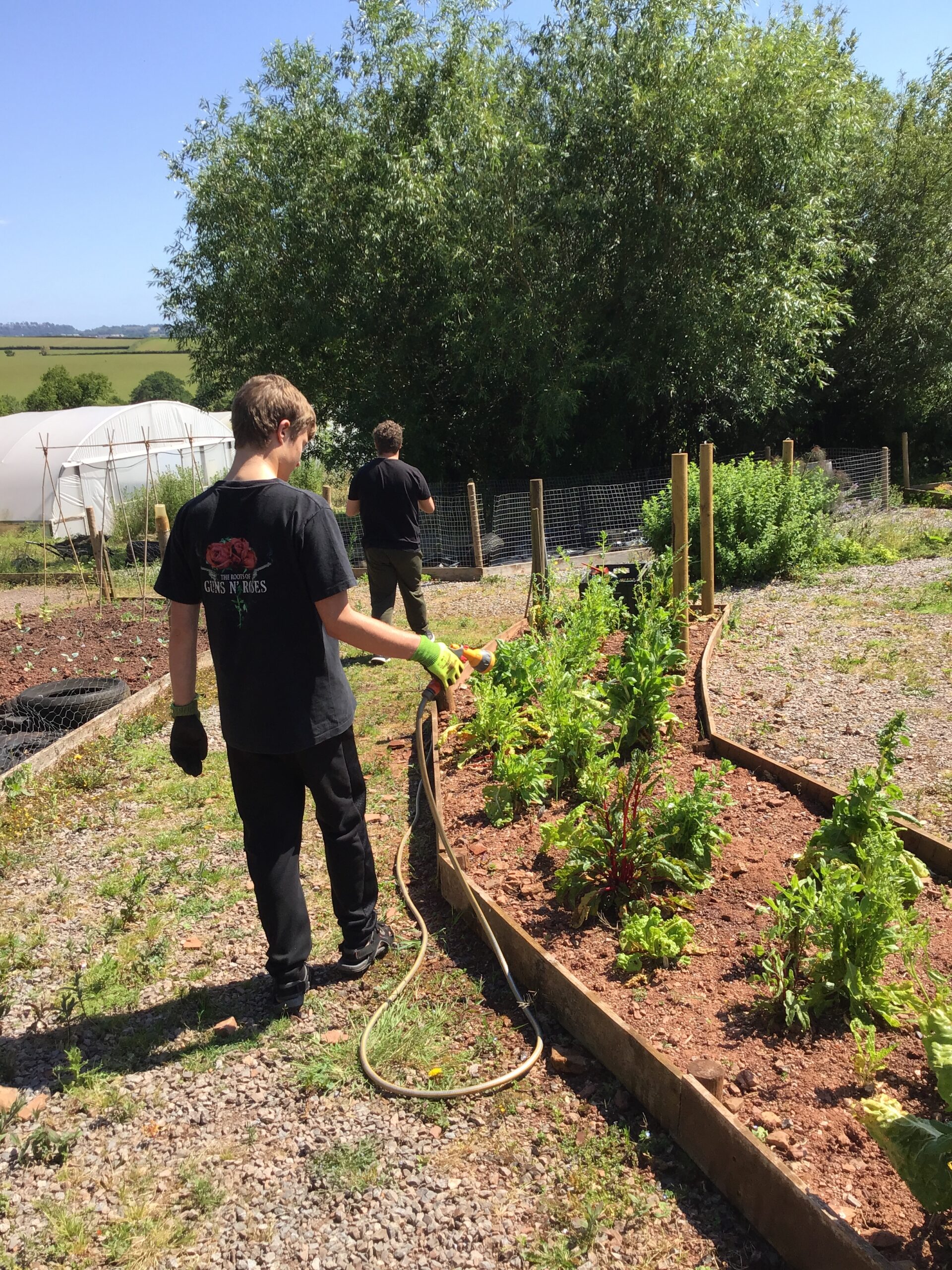
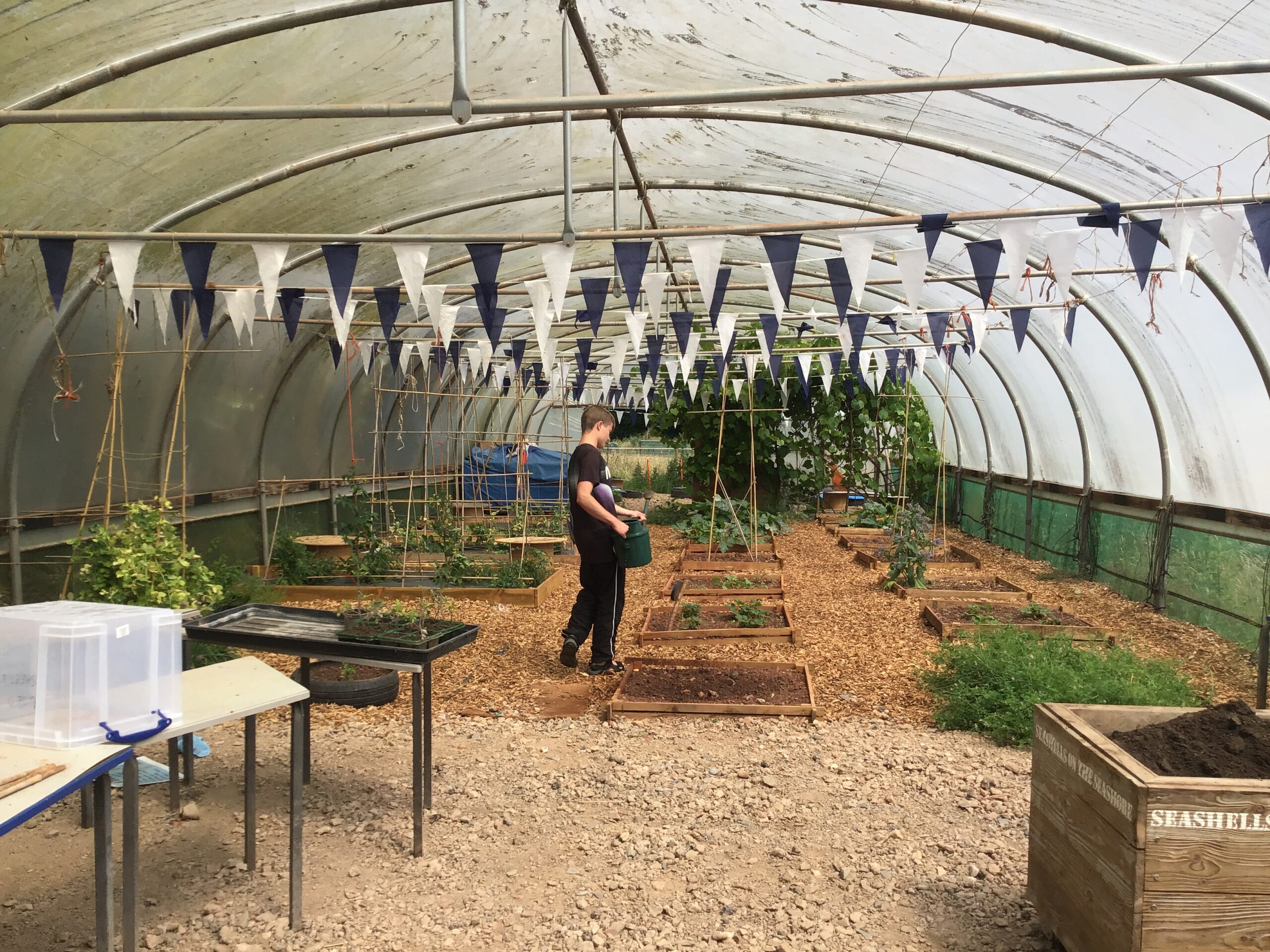
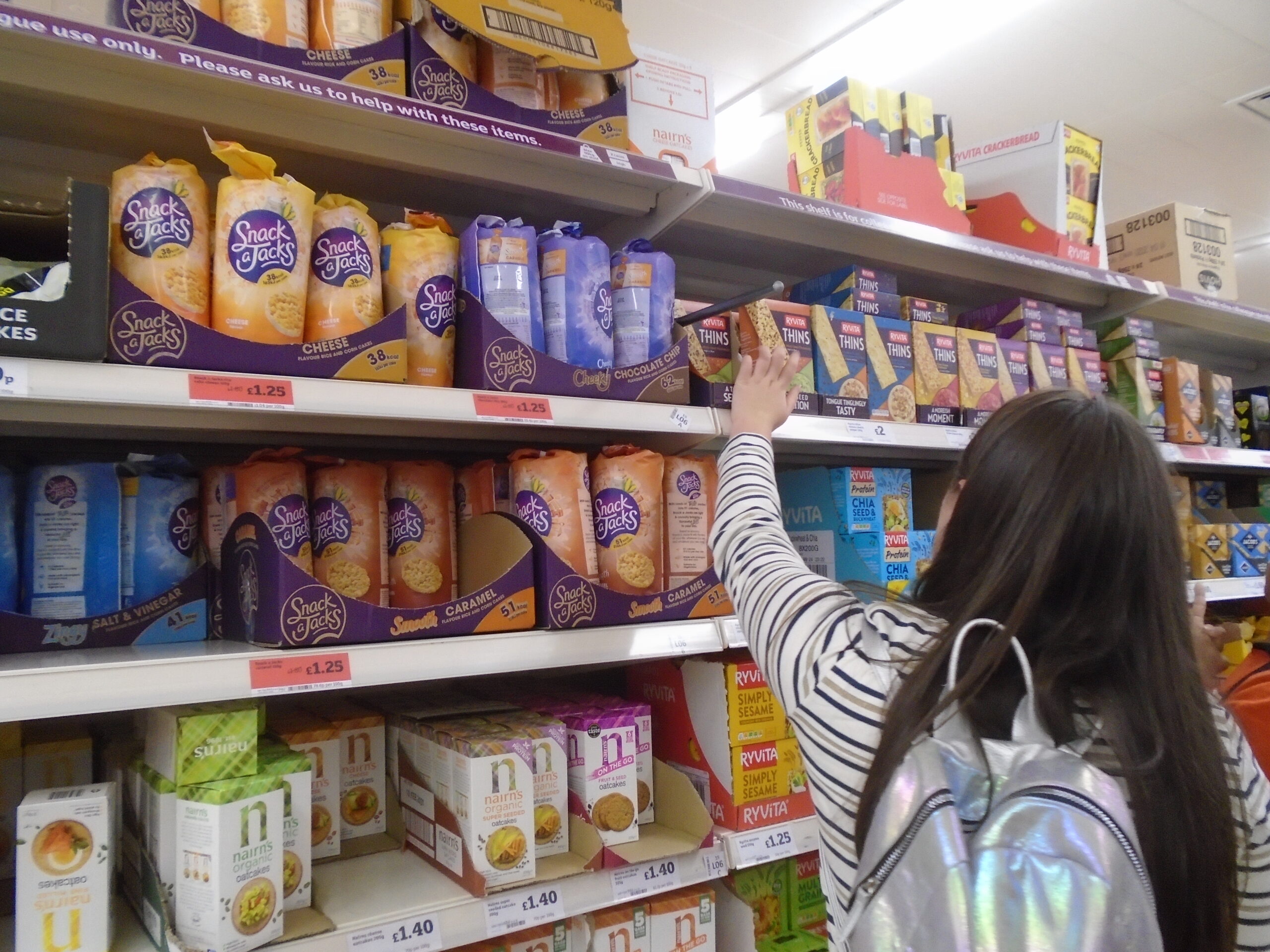
Click for the College Curriculum overview
College Curriculum Summaries
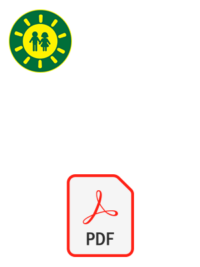
English

Computing

Maths

Reading

PSHE

RSE

RE

Personal Development

PE

Online Safety

Life Skills

British Values and SMSC

Dance

Art and Design

Science

Science Coverage

Communication

Enterprise
Student Council

November 2022

October 2023

February 2023

May 2023

May 2023
Teaching Staff

Rachel Hawthorne
Head of College

Hayley Loveday
Assistant Head

Helen Bailey
Associate Assistant Head

Jess Home
Teacher
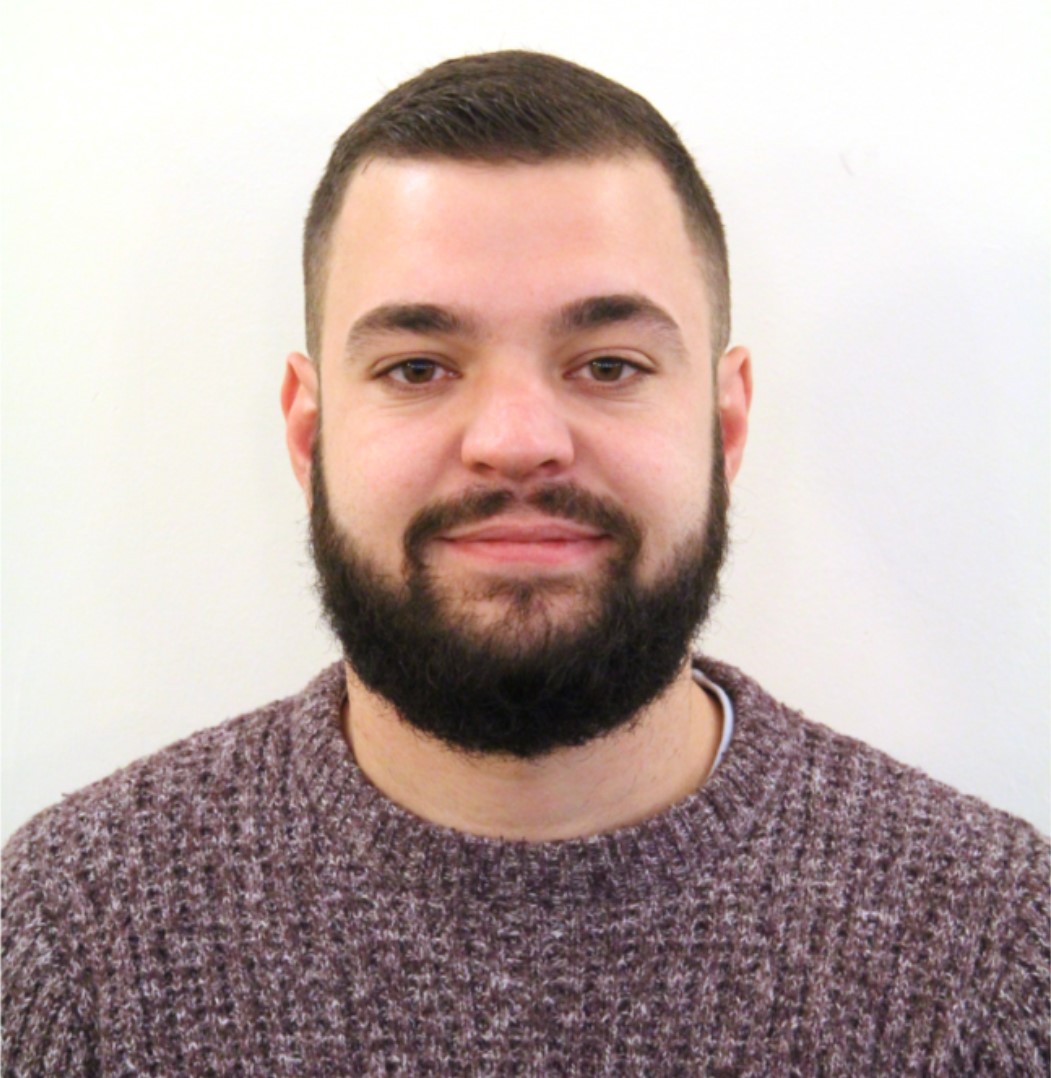
Aaron Constable
Teacher (UQ)

Sam Saunders
Teacher

Harrison Yeates
Teacher (UQ)
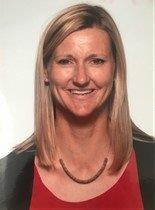
Kate Foley
Teacher

Russel Carter
Teacher

Louise Brennan
Teacher (UQ)
Feedback
‘Thank you to every one of you that has made my girl feel special and like she has a place in this world, for recognising when she’s needed a little more of your time, for laughing with her, with wiping her tears, for teaching her skills that she can use for the rest of her life, for taking her out into the community, for fastening her laces, for opening her Yogurts, for getting to know her and her needs and for nurturing her’.
“The arrangements for safeguarding are effective. Keeping pupils and students safe is a priority for the school. A kind and caring approach underpins practice”
“Teachers establish calm, purposeful and positive learning environments. Pupils have appropriate support and well prepared equipment, so they learn successfully”
“I will always be thankful and voice that as I feel it’s important for you all to know that the hard work you all put in makes such a difference to our lives”.
‘Thank you all so much for everything you have done for our son. He was feeling lost until he found Mayfield. He met many amazing people who dedicated their time encouraging him to thrive. He made lovely friends who he always craved. He felt included and valued. Now he’s leaving Mayfield after 10 years with many wonderful memories. I’m hoping this message reminds you how much you all are appreciated’.
Contact Us
Mayfield School
Mayfield College
Mayfield Chestnut Centre
please feel free to get in touch…
Say Hello!
Please submit your message using the form below and a member of the Mayfield team will be in touch shortly.

